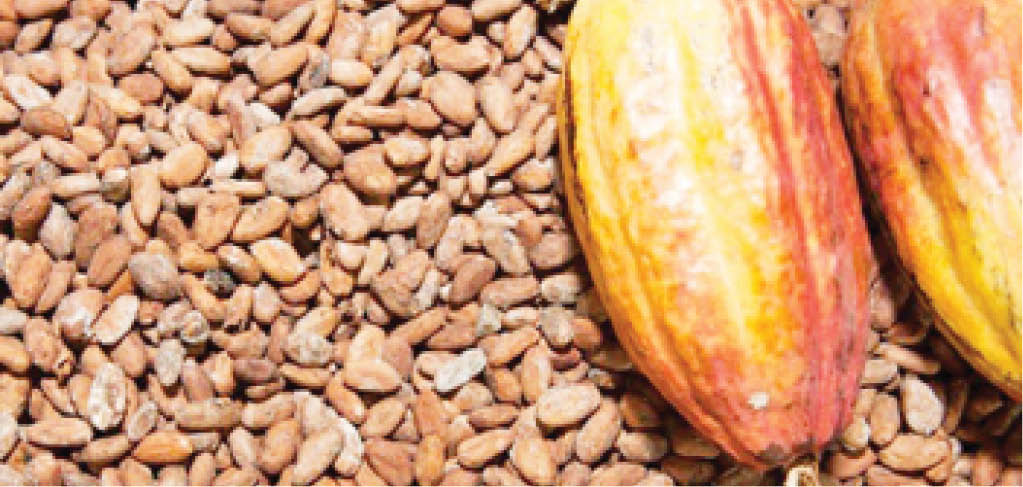‘Nigeria will become Africa’s biggest cocoa producer/exporter by 2027 if…’
The Cocoa Farmers Association of Nigeria (CFAN) has said it is determined to ensure a sustainable high quality cocoa beans among farmers in the country to become the highest cocoa producer and exporter in West Africa in the next five years. Stressing its commitment to increase cocoa production in conjunction with other value chain […]

Cocoa beans
The Cocoa Farmers Association of Nigeria (CFAN) has said it is determined to ensure a sustainable high quality cocoa beans among farmers in the country to become the highest cocoa producer and exporter in West Africa in the next five years.
Stressing its commitment to increase cocoa production in conjunction with other value chain stakeholders, the association revealed that cocoa production would be increased from 340,000 metric tonnes to 500,000 metric tonnes by 2024.
- May Day: Lawan urges speedy resolution of FG, ASUU faceoff
- Sex education is the parents’ responsibility, not the media
The national chairman of the CFAN, Comrade Adeola Adegoke, who stated this during the free distribution of cocoa Good Agricultural Practices (GAP) handbook to smallholder cocoa farmers in Ondo State, said the target would make the country produce the best quality cocoa beans in line with internationally acceptable best practices.
Speaking at the CFAN House, Akure, Ondo State capital, Adegoke, who harped on standards among cocoa farmers, stressed that the GAP handbook would enhance responsible use of pesticides, child labour eradication, deforestation, ecosystem and climate change, among others.
“The poor cocoa quality being experienced by our buyers and exporters, which have degraded and devalued the once preferred Nigeria cocoa beans at international markets, is not acceptable to us any longer.
“Our smallholder cocoa farmers must be guided and supported on responsible and acceptable international cocoa practices without any excuse.
“CFAN’s commitment to increase Nigeria’s cocoa production in conjunction with other value chain stakeholders from the about 340,000 MT to 500,000 MT by 2024, and to be the highest cocoa producer in the year 2027 in West Africa with sustainable cocoa beans, remains our core policy.
“This ambition is anchored on improved cocoa variety, national cocoa farm irrigation, the improvements of the livelihood of our smallholder cocoa farmers via the collection of $400 Living Income Differential (LID) and the overall improvements of the cocoa sector from research, inputs, production, value addition, processing to export,” he said.
Adegoke further explained that working with the Cocoa Research Institute of Nigeria (CRIN), EBAFOSA, harvest-field industries, the Federal Ministry of Agriculture, the Federal Ministry of Industry, Trade and Investment and other stakeholders to produce and distribute the cocoa GAP handbook for free to farmers contributed to the sustainability of the cocoa supply and value chains in Nigeria.
He said, “It is our contribution to the sustainability of the cocoa supply chain in Nigeria as the singular commodity that gives the highest foreign exchange earnings, apart from crude oil from the recent figures released by the Central Bank of Nigeria (CBN) and provided income to more than 2million cocoa families and over $100 million investment in the sector.”
